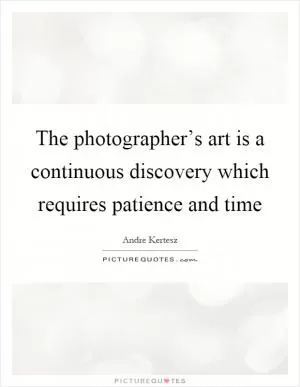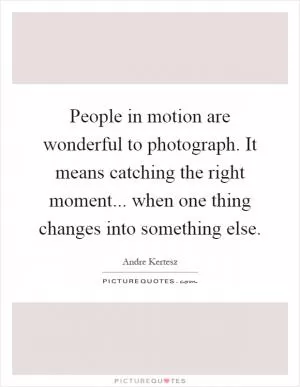Seeing is not enough; you have to feel what you photograph

Seeing is not enough; you have to feel what you photograph
André Kertész, a Hungarian-born photographer known for his innovative approach to composition and light, once said, "Seeing is not enough; you have to feel what you photograph." This statement encapsulates the essence of Kertész's work, which is characterized by its emotional depth and sensitivity.Kertész's photographs are not merely visual representations of the world around him; they are windows into his soul, capturing the fleeting moments of beauty and emotion that he experienced in his everyday life. His images are imbued with a sense of intimacy and vulnerability, inviting the viewer to connect with the subjects on a deeper level.
One of Kertész's most famous photographs, "Chez Mondrian," exemplifies his ability to infuse his work with emotion. The image depicts the interior of the studio of the renowned Dutch painter Piet Mondrian, with a lone chair and a small table set against a grid of black lines and primary colors. The stark simplicity of the composition belies the sense of quiet contemplation and introspection that permeates the scene. Kertész's use of light and shadow creates a sense of depth and mystery, drawing the viewer into the space and inviting them to feel the same sense of solitude and serenity that he experienced when taking the photograph.
In another iconic image, "Meudon," Kertész captures a moment of pure joy and freedom as a young boy runs down a flight of stairs, his arms outstretched and a look of pure delight on his face. The blurred motion of the boy's figure conveys a sense of movement and energy, while the soft focus and warm tones of the image evoke a feeling of nostalgia and innocence. Through his careful composition and use of light, Kertész is able to convey the sheer exuberance of the moment, allowing the viewer to share in the boy's sense of freedom and joy.












 Friendship Quotes
Friendship Quotes Love Quotes
Love Quotes Life Quotes
Life Quotes Funny Quotes
Funny Quotes Motivational Quotes
Motivational Quotes Inspirational Quotes
Inspirational Quotes